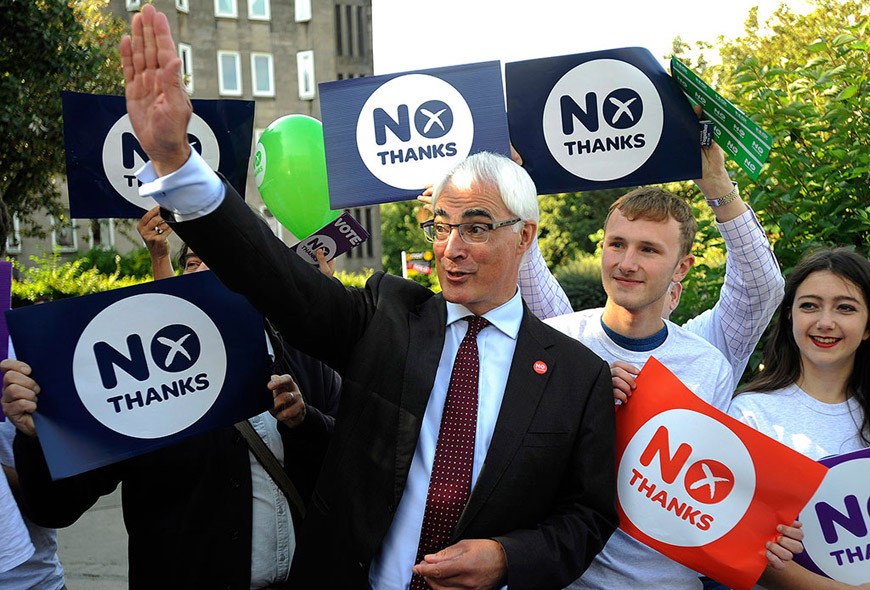The United Kingdom, a 307-year-old union, is made up of four countries: England, Wales, Northern Ireland, and Scotland. Recently, Scotland has questioned whether it really wants to remain a part of the UK. On September 18th, a historic vote was held to determine whether Scotland should suscede from the union. A “YES” vote meant a stance for independence, and a “NO” vote equated to staying with the union. After the ballots were counted, 55.3% of the votes were “NO” and 44.7% of the votes were “YES,” solidifying Scotland’s union with the rest of the United Kingdom. However, such a close vote elucidates that a significant portion of Scotland’s population isn’t satisfied with the current political and social systems implemented in the country. Although Scotland voted to stay, there are numerous reasons why the country took claiming independence under such serious consideration.
Why Does Scotland Want Independence?
Scotland is much more politically left-leaning than the rest of the UK. Scotland has 59 members in the UK parliament and only one of those members belongs to the Conservative party. The majority of England’s members are Conservatives.
Scotland currently has its own regional parliament, which can set health care, education and environmental protection policies. However, if Scotland gained independence, it would have much more control over taxation and spending priorities.
Scotland native Kerry Kennedy informs MiLLENNiAL that, from the beginning, she saw the positive in becoming an independent Scotland. “This is our chance to make decisions for ourselves and not be dictated by the British government, where we are seen as irrelevant anyway.”
Kennedy has been working toward presenting new models to Scotland’s educational system that address some of the biggest issues in child development. The children of Scotland would massively benefit from this educational change and gain a higher sense of self-worth and creativity. “So many creative ideas and businesses were created here in Scotland and I believe that can only become stronger as an independent country,” said Kennedy.
Kennedy currently helps parents and children resolve difficulties during childhood development through her coaching business. She asserts that the decisions made based around these issues are not always the best decisions for everyone, and that as an independent country, Scotland could create a system that benefits everyone.
The British Government, however, has been trying to convince Scotland to stay. As Kennedy informs us, the methods may not be the most ethically upstanding ones: “I feel that the British Government has been using tactics to manipulate Scottish people to vote NO. There have been promises made to convince us to stay, but these promises are too little too late.”
Kennedy spoke about how year after year, it seems that Scottish voices are silenced in terms of voting in the British government. “I feel this is what is turning Scottish people to want independence because their voices are not being heard and haven’t been for a very long time.” She says that the Scottish people don’t want a divide, they just want to be able to make their own decisions concerning their country.
Kennedy highlights some of Scotland’s values: “We want world peace, and being independent will mean that the weapons of mass destruction will no longer be in our country, which the Scottish people never wanted nor had a say in that decision.” Scotland’s government wants to ban nuclear weapons on moral grounds within four years of independence and could force London to relocate the weapons currently being stored in Scotland to alternative bases in England.
Clearly, the decision to become an independent country is about a lot more than the sole purpose of autonomy. There are a lot of social incongruities between Scotland and the rest of the United Kingdom and Scotland is tired of sacrificing these values.
What Could’ve Happened If Scotland Gained Independence?
First and foremost, it’s important to note that even if Scotland had voted “yes,” that the official split wouldn’t have happened until March 2016. The UK doesn’t have a written constitution like the United States, so its political institutions and systems have evolved over time. Recreating an independent Scotland would’ve been uncharted territory and would’ve taken some time.
Scotland would’ve also had to renegotiate its membership in the European Union, but the Scottish government was confident that it would’ve still met the necessary criteria for membership after March 2016.
There are many other issues that would’ve arisen had Scotland claimed its independence. Many Scottish people live in England and many English people live in Scotland. Passports might have been required to travel between countries.
Scotland and the UK would have to decide if Queen Elizabeth would also be the Queen of Scots, or if Scotland would adopt an entirely new political system without the monarchy.
One of the biggest issues Scotland faced was whether or not to continue using the pound as its currency, switch to the euro, or create its own currency. Additionally, there would have been an issue of dividing the UK’s public debt. Would Scotland be held responsible for that debt or would it have been awarded a clean slate? There were a lot of issues that needed to be negotiated and resolved before Scotland could have enjoyed its autonomy had the people opted for succession.
Although Scotland has voted to remain a part of the United Kingdom, it’s inevitable that its relationship with the rest of the UK will change. Now more than ever, with such a large portion of Scotland’s native population being dissatisfied with the final decision there is a greater incentive to fight for the changes they feel are imperative for a better Scotland. And while they will continue with their union with England, Wales, and Northern Ireland, the Scotish people will actively work to demand rights and authority in the areas that need change.


